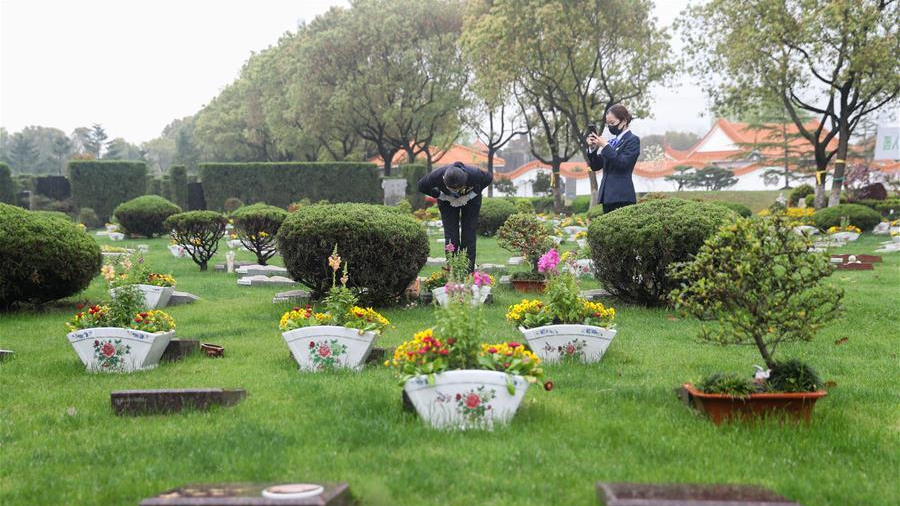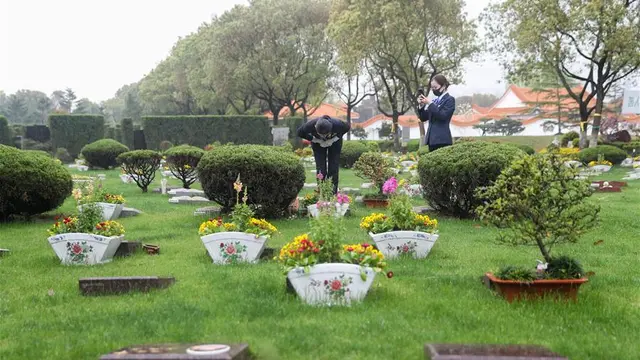
The Qingming Festival or Tomb Sweeping Day, first began about 2,500 years ago during the reign of the Zhou Dynasty as a flamboyant practice carried-out by the rich and influential people of the society to honor their ancestors by offering sacrifices. In return, they would implore the deceased to bestow blessings in the form of prosperity, peace, and good harvests.
This practice lasted until the year 732, when Emperor Xuanzong of the Tang Dynasty, declared, that the respect to the ancestors must be paid only on the Qingming solar term. Since then, the Qingming Festival became popular in both the rich and the commoners alike, thereby becoming an inseparable part of the country's tradition. However, the festival was recognized as a public holiday in the Chinese mainland for the first time only in 2008.
Chinese from several regions, including Malaysia, Singapore, Indonesia, and Thailand, observe the Qingming Festival. It usually falls on the first day of the fifth solar term, around April 4, 5 or 6 of each year.
Traditionally, Chinese people celebrate this festival by visiting the graves of their deceased family members and offering them food, tea, wine, and other items. They also burn incense sticks and joss paper (a paper that represents paper money), sweep the tombs, remove weeds, and add fresh soil to the graves. Some people put willow branches, flowers, or plastic plants on the tombs and pray to their ancestors to bless their families at the end of the ritual.
Besides tomb-sweeping, Chinese people also like to do several other activities to celebrate the Qingming Festival. The most common is to go out on spring outings to explore the spring blossoms. Apart from the outing, flying kites is also a popular activity during the festival. In the past, people used to cut the strings so that kites could float freely in the sky. People believed that this custom would bring good luck and eliminate diseases.
Notably, as per the Ministry of Civil Affairs, last year almost 9.78 million Chinese people visited cemeteries to pay respect to their ancestors during this three-day festival. However, this year, because of COVID-19, it is not possible for people to come out in such large numbers to celebrate the festival.

Two cemetery staff stand at one of the entrance of the Babaoshan People's Cemetery, west Beijing, April 4, 2020. Liu Yang/CGTN
Nevertheless, as an English proverb suggests "necessity is the mother of invention," the current situation has propelled the Chinese masses to come up with innovative ways to celebrate the Qingming Festival. For instance, many organizations in the nation have launched "cloud tomb-sweeping" services. In Guangdong Province, this service was launched on the provincial government's e-platform on WeChat. Similarly, the Fu Shou Yuan group's Fushouyuan Cemetery and Haigang Lingyuan Cemetery in Shanghai have also started their cloud tomb-sweeping channels for the relatives of those buried there.
With the help of this service, the online tomb sweepers can edit the biographical information of their deceased relatives, upload pictures and videos, and place virtual offerings and commemorative items on the digital graves. They can leave their wishes online and also share the link of their digital tomb-sweeping with other relatives and friends.
Additionally, people can hire cemetery staff to sweep the tombs on their behalf and host a live broadcast of the entire ceremony. They can also request for the videos and photographs of the proceedings. The cemetery staff, upon hired, goes to the tomb and, after cleaning, offers flowers or other items as per the request of the families of the deceased. The cemeteries are also providing a panoramic view of the graves using VR technology to facilitate further the virtual tomb sweepers. According to the Fu Shou Yuan group, the organization is providing the "cloud tomb sweeping" in almost 30 cities in the China mainland, while broadcasting the live tomb-sweeping ceremony.
Moreover, some cemeteries have adopted an appointment system that allows the tomb sweepers to choose from the available time-slots and perform the rituals by themselves. However, in this case, people are required to go to the cemetery on time and register their personal information, followed by body temperature checks before entering the cemetery.
Moving on, performing a digital tomb-sweeping is not just the need of the hour in the current crisis, but also provides certain other benefits. For instance, digital sweeping is more convenient for people who live in distant cities and find it difficult to visit the graves of their family members every year. Also, cloud-based tomb sweeping is environmentally friendly because people don't need to burn real incense sticks and joss paper.
As per the Fu Shou Yuan International, the group had more than 87,000 visitors in just a week since the launch of their cloud tomb-sweeping platform. Therefore, by looking at the current state, it seems that the digital tomb-sweeping trend would continue to catch the attention of Chinese people in the future. However, only the time will tell whether it would entirely replace the traditional method of offering respect to the ancestors in the coming years or not.
(CGTN)
 简体中文
简体中文

